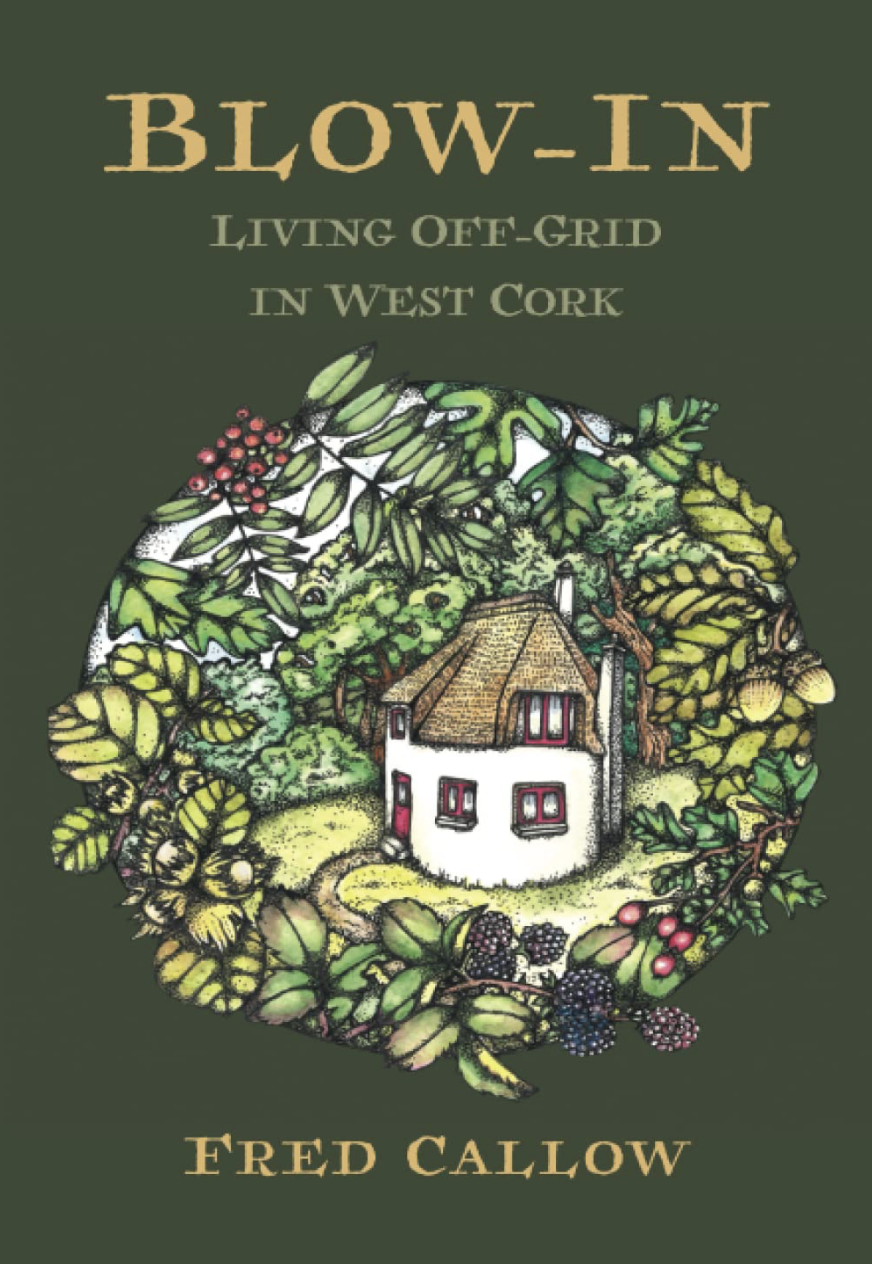 Image 1 of 1
Image 1 of 1


Blow-In - Fred Callow
Armed with “self-belief and convictions and music”, Fred Callow in 1990 left the UK to put down roots in rural Ireland in search of a simpler, more authentic way of life. In West Cork, he discovered what he calls his “Family”, a group of like-minded people striving to live an alternative lifestyle in a place called Cool Mountain, not far from the town of Dunmanway.
In Blow-In, Fred tells of his involvement for more than thirty years with this group of “strongly individualistic” and “sometimes eccentric” members, many of them refugees from the harsh political realities of Thatcher’s Britain.
Despite initial suspicions stirred up by unscrupulous media commentators and politicians, this “hippy” community managed eventually to establish an excellent lasting relationship with local people and became a major contributor to the artistic and musical culture of West Cork.
The community wasn’t without its own internal problems, Fred explains in this candid account. But in that regard, it was no different to the world outside it. At the end of the day, he says, it was simply a collection of people “looking to feed and house their families. . .gardeners and smallholders and basket makers having a little fun drinking and playing music together along the journey”.
Blow-In is an important contribution to recent West Cork history. It also offers a thought-provoking, critical reflection on the changes that have taken place in rural Ireland over the past three decades.
Armed with “self-belief and convictions and music”, Fred Callow in 1990 left the UK to put down roots in rural Ireland in search of a simpler, more authentic way of life. In West Cork, he discovered what he calls his “Family”, a group of like-minded people striving to live an alternative lifestyle in a place called Cool Mountain, not far from the town of Dunmanway.
In Blow-In, Fred tells of his involvement for more than thirty years with this group of “strongly individualistic” and “sometimes eccentric” members, many of them refugees from the harsh political realities of Thatcher’s Britain.
Despite initial suspicions stirred up by unscrupulous media commentators and politicians, this “hippy” community managed eventually to establish an excellent lasting relationship with local people and became a major contributor to the artistic and musical culture of West Cork.
The community wasn’t without its own internal problems, Fred explains in this candid account. But in that regard, it was no different to the world outside it. At the end of the day, he says, it was simply a collection of people “looking to feed and house their families. . .gardeners and smallholders and basket makers having a little fun drinking and playing music together along the journey”.
Blow-In is an important contribution to recent West Cork history. It also offers a thought-provoking, critical reflection on the changes that have taken place in rural Ireland over the past three decades.
